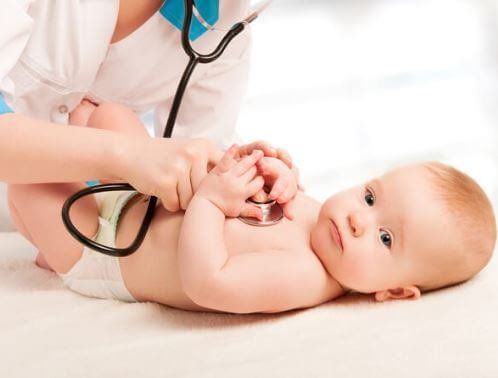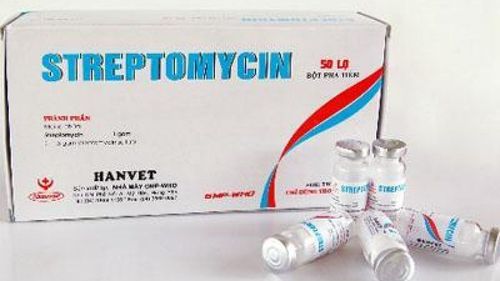This is an automatically translated article.
Bethkis is a medicine used to treat bacterial infections of the lungs. This is an antibiotic, so the treatment should be according to the prescription and instructions of the doctor. The content below will describe more clearly the effects, side effects and notes when using this drug.
1. What is the use of Bethkis?
Bethkis with Tobramycin is used by inhalation to treat lung infections in patients with cystic fibrosis. Tobramycin belongs to the group of Aminoglycoside antibiotics. It works by killing bacteria or stopping their growth. However, this medicine will not work for colds, flu, or other viral infections.
This medicine can only be purchased with a doctor's prescription.
2. Considerations before using Bethkis
When deciding to use a drug, the risks of taking the drug must be weighed against the benefits it offers. For the use of Bethkis, consider the following:
Allergies: Tell your doctor if you have ever had any unusual or allergic reaction to Bethkis or any other medicines. Pediatrics: Research has not demonstrated the safety of Bethkis in children under 6 years of age. Geriatrics: Although appropriate studies on the relationship of age to the effects of Bethkis have not been performed in the elderly, no geriatric-specific problems have been reported to date. However, elderly patients are more likely to have age-related kidney problems, so caution and an adjustment in the dose are needed when taking this medicine. Breast-feeding: There are no adequate studies in women to determine the risk to the infant when using this medicine while breast-feeding. Weigh the benefits against the possible risks before taking the medication. Other medical problems: Talk to your doctor if you have any other medical problems, especially: Allergy to aminoglycoside antibiotics, breathing problems, kidney disease, myasthenia gravis, illness Parkinson's, hearing or balance problems.
3. Notes in the process of using Bethkis
Your doctor needs to constantly check these biomarkers to make sure this medicine is working properly. Blood and urine tests may be needed to check for unwanted effects.
Using this medicine while you are pregnant may harm your unborn baby. If you know you have become pregnant while using this medicine, tell your doctor immediately.
This medicine may cause hearing loss. Call your doctor at once if you notice any changes in your hearing or if you have ringing in your ears, headache, nausea, vomiting, or dizziness.
Use of this medicine may harm the kidneys. Check with your doctor right away if you have any of the following symptoms: Blood in the urine, change in the frequency of urination, trouble breathing, increased thirst, swelling of the feet or legs.
When taking this medicine, you may have a cough or difficulty breathing. Call your doctor at once if you have a cough, trouble breathing, or chest tightness after using this medicine.
If you do not see the use of Bethkis, please inform your doctor soon. Do not change the dosage or stop using the medicine without consulting your doctor.
Do not take other medicines unless they have been discussed and agreed with your doctor.
4. Use Bethkis correctly
Use this medication only as prescribed and ordered by your doctor. Do not use more often, or for a longer time than directed by your doctor. Keep using this medicine for the full time of treatment, even if you feel better after the first few doses. The infection may not go away if the medicine is stopped too soon. The inhalation solution comes packaged in a small plastic container called an ampoule. Each ampoule contains one dose of Tobramycin. Do not use opened ampoules. Also, do not use an expired ampoule printed on the package. If using an inhaler:
Tobramycin is specially formulated for use with the PARI LC PLUS nebulizer. An air compressor is used with a nebulizer to turn medication into a fine spray that will inhale the aerosol through the mouth and into the lungs. Use the mouthpiece of the nebulizer to inhale Bethkis. You will need to use the nebulizer for about 10 to 15 minutes or until the medication in the nebulizer cup is empty. Clean all parts of the nebulizer after each use. You can gargle or suck on hard candy if the inhaler leaves an unpleasant taste in your mouth. If using inhaled capsules:
Do not swallow inhaled capsules. This medication is specially formulated for use with the Podhaler TM device. Store the capsules in the blister until ready to use. The Podhaler TM should be replaced every 7 days. To inhale this medication, first exhale as hard as you can, trying to get as much air out of your lungs as possible. Place the mouthpiece in your mouth with the device upright. Then inhale slowly and deeply. Hold the breath for about 5 seconds, then exhale slowly. Wipe the mouthpiece with a clean, dry cloth. Make sure that the Podhaler TM is always dry for normal operation.
5. Preservation of Bethkis
Keep out of reach of CHILDREN. Do not keep expired medicine Ask a healthcare professional how to dispose of any unused medicine properly. Store in the refrigerator. Do not store in the freezer. If tobramycin inhalation solution cannot be kept in the refrigerator, store it in a foil bag at room temperature for up to 28 days, away from sources of heat or direct light. Do not use medication that has been kept at room temperature after 28 days.
6. Dosage and how to use Bethkis
Reference dosage of Bethkis in the treatment of Pseudomonas lung infections:
For solution:
Adults and children 6 years of age and older: One tube or box contains 300 milligrams (mg) Tobramycin, take 2 times a day for 28 days in a nebulizer. Then stop using this medicine, wait 28 days and repeat the cycle. Take doses at least 6 hours apart. Children under 6 years: Use and dosage must be determined by a doctor. For the capsule form:
Adults and children 6 years of age and older: 4 capsules with 28 milligrams (mg) of Tobramycin, 2 times a day for 28 days. Then stop using this medicine and wait 28 days, repeat the cycle. Take doses at least 6 hours apart Children under 6 years: Use and dosage should be determined by a doctor. Missed dose:
If you miss a dose of this medicine, take it as soon as you remember. However, if it is almost time for your next dose, skip the missed dose and take your next dose as usual. Do not double the dose.
7. Side effects of the drug Bethkis
Common:
Nosebleeds ; Shortness of breath; Have a runny nose; Discoloration of sputum; Fever; Sneezing; Stuffy nose; Change the voice. Less common:
Chest tightness; Chills; Tinnitus or buzzing or other unexplained noises in the ears; Hearing loss; Painful or difficult urination; Ulcers; Unusual bleeding or bruising; Fatigue or weakness ; A cough; Rapidly breath. Get emergency help right away if any of the following overdose symptoms occur:
Blue lips, fingernails or skin; Dizziness, lightheadedness; Sleepy; Persistent sense of movement of self or surroundings; irregular, fast or slow, shallow breathing; Feeling dizzy. Above is information about uses, dosage and precautions when using Bethkis medicine. To ensure safety for your health and maximize the effectiveness of your treatment, you need to take Bethkis exactly as directed by your doctor.
Please dial HOTLINE for more information or register for an appointment HERE. Download MyVinmec app to make appointments faster and to manage your bookings easily.













